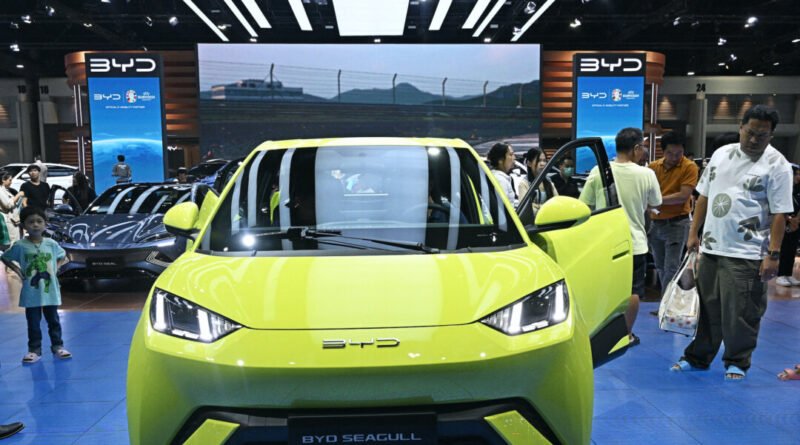Concerns over EV tariffs cast a shadow on EU-China relations
The European Union is expected to announce a tariff on Chinese electric vehicles in early June due to decreasing trust in EU-China relations.
The European Union is expected to announce a tariff on Chinese electric vehicles (EVs) in early June as a result of the anti-subsidy investigation the European Commission launched last October.
The probe aims to find out if the Chinese EVs exported to the EU market have received excessive subsidies, leading to unfair trade practices.
“China heavily subsidized all these products, pushing Chinese companies to produce far more than the rest of the world can absorb, and then dumping the excess products onto the market at unfairly low prices, driving other manufacturers around the world out of business,” said President Joe Biden before signing the order on May 14.
The U.S. move is largely a preemptive one because Chinese-made EVs are still rare in the American market. However, China-produced EVs have already established a strong foothold in Europe.
Yao-Yuan Yeh, a professor of international studies at the University of St. Thomas in Houston, anticipates the European Commission finding evidence of excess Chinese EV subsidies and either imposing a tariff or quota on Chinese EVs.
In his view, the levy Europe imposes on Chinese EVs is likely to be lower than America’s because export-driven economies like Germany are more vulnerable to China’s retaliatory measures.
He thinks the potential EU tariff could be as high as 80 percent, while Rhodium Group estimates it should be between 45 and 55 percent to create a level playing field between Chinese and European EVs.
‘United Front’
World leaders have acknowledged that they need to work together to address China’s exports of excess EV capacity.
During the G7 finance ministers’ meeting in late May, U.S. Treasury Secretary Janet Yellen urged a joint G7 response to China’s industrial overcapacity in a “strategic and united way.”
France’s Finance Minister Le Maire also called for a “united front” against China’s unfair trade practices but warned to “avoid any kind of trade war.” German Finance Minister Christian Lindner shares a similar concern; he added that “trade wars only have losers; they cannot be won.”
Italian Industry Minister Adolfo voiced his support for Europe to follow the United States’ tariff policy at a business conference on May 25. The UK is considering a similar anti-subsidy investigation.

Eroding Trust Between EU and China
The EV tariff issue comes at a time when EU-China relations have entered a different phase. Policy released in 2019 signified a shift to view China as “an economic competitor and a systemic rival.” Before that, the European Union had organized around economic engagement with China and saw China as a strategic partner for more than a decade.
Last September, European Commission President Ursula von der Leyen stated that the “global market is flooded with cheaper electric vehicles” with artificially low prices owing to “huge state subsidies” during her State of the Union Address, before launching the anti-subsidy investigation on Chinese EVs.
Despite tit-for-tat investigations, the relationship between China and the EU has not yet reached the point of a complete showdown, according to Mr. Yeh.
“I think the relationship between the two sides is in a stalemate. While it won’t improve, it won’t completely deteriorate into two extremes in trade and investment,” he told The Epoch Times. He added that “the United States is pulling the EU to resist China, but Europe still views Russia as the biggest threat.”
She warned that the security risk associated with Chinese EVs would be more difficult to address than telecom equipment in a 5G network.
‘Smartphones on Wheels’
An increasing number of Chinese EVs would threaten the transportation infrastructure in a manner similar to how Huawei threatened Europe’s telecommunications networks, Megan Khoo, a former defense analyst and current research and policy adviser of Hong Kong Watch, told The Epoch Times.
Ms. Khoo urged European countries to take stringent measures against the use of Chinese EVs in sensitive areas to mitigate potential security risks.
Mr. Yeh agrees that Chinese EVs could potentially become another means for communist China to gather intel in European countries. “As of now, I haven’t seen the EU has a solution to this problem.”
Terri Wu contributed to this report.





